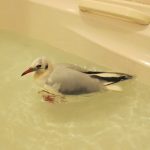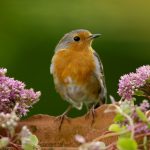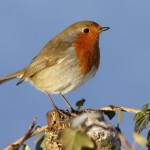BRITAIN’S biggest public-led investigation into the health of native wildlife has begun, with the launch of the national Garden Wildlife Health project.
A partnership between the Zoological Society of London (ZSL), the British Trust for Ornithology (BTO), Froglife and the Royal Society for the Protection of Birds (RSPB), Garden Wildlife Health is the first collaborative citizen science project of its kind, relying on data provided from garden owners across the nation.
Monitoring the well-being of species commonly found in Britain, including amphibians, reptiles, garden birds and hedgehogs, members of the public are being asked to report signs of disease online at gardenwildlifehealth.org.
All of the information collected will be used by the Garden Wildlife Health team to assess where and when wildlife diseases are occurring and the impact they have on animal populations to help safeguard against future declines.
Tim Hopkins, Garden Wildlife Health project co-ordinator at ZSL says: “We all share our gardens with wildlife but often fail to notice how these animals are faring. We’re already seeing a steep decline in a number of iconic British animals, including the hedgehog, and we need to know whether disease is playing a role.
“This new national project relies on the help and support from the British public, and we urge people to get in contact with us at gardenwildlifehealth.org to tell us what they’re seeing in their garden; it really will make a difference.
“We know that common frog and greenfinch populations have declined as a result of disease and keeping an eye on our British garden species is crucial if we are to understand the threats to their health, which not only affect individual animals, but can impact entire populations.”
 Kathy Wormald of Froglife added: “We are already aware that many British wild animal populations have declined due to habitat loss. More recently it has become apparent that infectious disease in amphibians has caused significant population declines. This new project will provide us with invaluable information to help these species.”
Kathy Wormald of Froglife added: “We are already aware that many British wild animal populations have declined due to habitat loss. More recently it has become apparent that infectious disease in amphibians has caused significant population declines. This new project will provide us with invaluable information to help these species.”
Clare Simm, from BTO says: “It is great to have our network of BTO Garden Bird Watchers at the core of this new project. Their weekly records of garden wildlife provide systematic information on wildlife populations and disease, supporting the reports coming in from other sources.”
Collating reports from the British public, the Garden Wildlife Health team will be able to assess for the first time valuable information on the well-being of native species and explore if disease is contributing to population declines. To learn more about the project, the diseases affecting British garden wildlife and how you can get involved please go to: www.gardenwildlifehealth.org.





